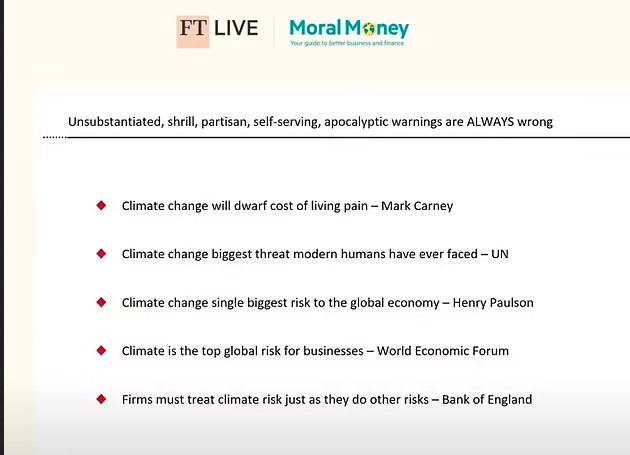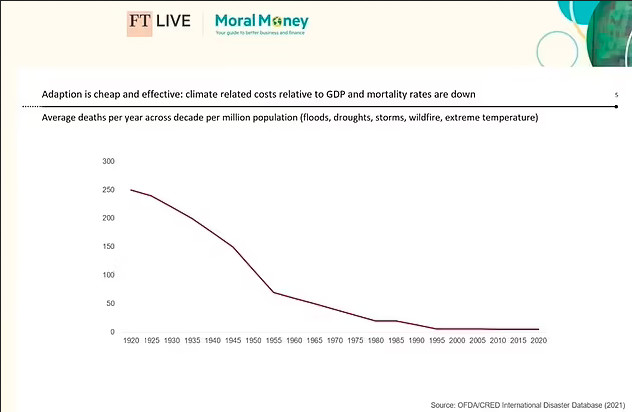
HSBC just announced it wants to literally render the planet Earth unfit for human habitation. Let's talk about its other crimes. Remember the #LIBOR scandal? HSBC was neck-deep in it, costing the world's public coffers *trillions* through fraud?
bloomberg.com/news/articles/… 1/
bloomberg.com/news/articles/… 1/

If you'd like an essay-formatted version of this thread to read or share, here's a link to it on pluralistic.net, my surveillance-free, ad-free, tracker-free blog:
pluralistic.net/2022/05/24/mor… 2/
pluralistic.net/2022/05/24/mor… 2/
HSBC used laundered money from the world's most corrupt people to cash in on LIBOR rigging. Remember #SwissLeaks? They paid €300m to settle French money-laundering claims and escaped real consequences in the other countries implicated in the leak:
en.wikipedia.org/wiki/Swiss_Lea… 3/
en.wikipedia.org/wiki/Swiss_Lea… 3/
HSBC often gets away with it. They're in the top three corporations to have received "deferred prosecution agreements" from the US DOJ, which are a kind of good-behavior-based stay of criminal charges. 4/
When HSBC fails to end its criminal conduct, it doesn't get punished - it gets another DPA.
citizen.org/article/soft-o…
It's hard to say why HSBC gets favorable treatment. 5/
citizen.org/article/soft-o…
It's hard to say why HSBC gets favorable treatment. 5/
Perhaps it has to do with the bank's aggressive recruiting of regulators - like in 2016, when US Financial Crimes Enforcement Network Director Jennifer Shasky Calvery quit her job and went to work for HSBC:
icij.org/investigations… 6/
icij.org/investigations… 6/
Calvery knew what kind of company she was going to work for. HSBC was one of the robo-signing banks that operated foreclosure mills, literally stealing thousands of US homes that they had no right to foreclose on, using forged documents.
salon.com/2013/08/12/you… 7/
salon.com/2013/08/12/you… 7/
"Some will rob you with a six-gun, And some with a fountain pen." HSBC doesn't care which kind of thief you are, they want your money. 8/
Remember when HSBC installed new, wider cashiers' windows at some of its branches so they could accept duffelbags full of Mexican drug cartel cash?
web.archive.org/web/2012121601…
The company paid a fine equivalent to five weeks' profits for that one, and no one went to jail. 9/
web.archive.org/web/2012121601…
The company paid a fine equivalent to five weeks' profits for that one, and no one went to jail. 9/
Indeed, we generally get our news about HSBC from its three-panel ads showing its commitment to a kind of cuddly, multi-culti globalism.
reuters.com/article/us-hsb… 10/
reuters.com/article/us-hsb… 10/
Hard-hitting reports on HSBC are few and far between. Hard to say why, exactly, but maybe it's because the company uses its advertising budget as leverage to pressure newspapers to spike their reporters' investigative pieces on the bank?
opendemocracy.net/en/opendemocra…
11/
opendemocracy.net/en/opendemocra…
11/
HSBC can't stop criming. From the #PanamaPapers to 2020's #Fincen leaks, HSBC is always center-stage, helping the world's worst people launder their gains:
pluralistic.net/2020/09/21/too…
12/
pluralistic.net/2020/09/21/too…
12/
The rot starts at the top. In 2015, HSBC CEO Stuart Gulliver admitted to laundering his pay through *two* tax havens - Switzerland and Panama - to hide his money from the taxman, and to prevent his underlings from learning how much he was making:
nakedcapitalism.com/2015/02/bill-b…
13/
nakedcapitalism.com/2015/02/bill-b…
13/
Given that leadership, it would be naive to blame bad apples in the bank for its crimes. That's what HSBC CEO Noel Quinn asks of us in his Linkedin post disclaiming an HSBC conference talk called "Why investors need not worry about climate risk."
linkedin.com/posts/noel-qui…
14/
linkedin.com/posts/noel-qui…
14/
HSBC is a major fossil-fuel backer, keeping the money-spigots open for coal and gas. Two months ago, Stuart Kirk, global head of responsible investing for HSBC asset management, got approval to give a climate denial talk at the FT Moral Money Summit (I'm not making this up).
15/
15/
> I feel like it's getting a little bit out of hand, the constant reminder that we are doomed. The constant reminder that in decades it's all over. It's become so hyperbolic that no one knows how to get people's attention any more.
17/
17/
> But what bothers me about this one, is the amount of work these people make me do, the amount of regulation coming down the pipes, the number of people in my team and at HSBC dealing with financial risks from climate change.
dailymail.co.uk/news/article-1…
18/
dailymail.co.uk/news/article-1…
18/
Kirk said that the bank was paying too much attention to a problem that was "20 or 30 years down the line."
> I work at a bank that's being attacked by crypto. We've got regulators in the US trying to stop us. We've got the China problem.
19/
> I work at a bank that's being attacked by crypto. We've got regulators in the US trying to stop us. We've got the China problem.
19/

> I work at a bank that's being attacked by crypto. We've got regulators in the US trying to stop us. We've got the China problem.
> We've got a housing crisis looming. We've got interest rates going up.
20/
> We've got a housing crisis looming. We've got interest rates going up.
20/
> We've got inflation coming down the pipes and I'm being told to spend time… looking at something that's going to happen in 20 or 30 years. Hence, the proportionality is completely out of whack.
21/
21/
> Human beings have been fantastic at adapting to change, adapting to climate emergencies, and we will continue to do so.
> Who cares if Miami is six metres underwater in 100 years? Amsterdam has been six metres underwater for ages and that's a really nice place.
22/
> Who cares if Miami is six metres underwater in 100 years? Amsterdam has been six metres underwater for ages and that's a really nice place.
22/
Kirk said that climate risk was overblown. Speaking of former Bank of England governor and environmental campaigner Mark Carney, he said:
> I completely get that at the end of your central bank career there are still many, many years to fill in.
23/
> I completely get that at the end of your central bank career there are still many, many years to fill in.
23/
> You have to say something, you have to fly around the world to conferences, you have to out-hyperbole the next guy, but I feel like it is getting a little bit out of hand.
24/
24/
One of his slides read: "Unsubstantiated, shrill, partisan, self-serving, apocalyptic warnings are ALWAYS wrong." He compared the climate emergency to Y2K panic.
ft.com/content/8e1a16…
25/
ft.com/content/8e1a16…
25/

HSBC co-sponsored the Moral Money Summit, and Kirk's talk title was live on its website. HSBC is under investigation in the UK for running misleading ads about its green investing.
ft.com/content/6c08ae…
26/
ft.com/content/6c08ae…
26/
Kirk, who once ran the FT's Lex column, has also served as HSBC's global head of research and insights. He has a Cambridge econ degree. His thesis turned on the fact that finance had ignored the climate and since markets are infallible, the climate emergency must be a hoax.
27/
27/

Kirk's bosses, HSBC CEO Noel Quinn and head of HSBC’s wealth and personal banking Nuno Matos, suspended Kirk. They ask us to believe that HSBC - a criminal institution of notorious depravity and dishonestly, under investigation for greenwashing - cares about the climate.
28/
28/
They wrote: "The transition to net zero is of upmost (sic) importance to us and we will strive for ways to help our clients on this journey."
29/
29/
The finance sector can't save us from the climate emergency, because the finance sector *created* the climate emergency, bankrolling the fossil fuel companies, laundering their money, and corrupting their regulators.
30/
30/
They are too big to fail, too big to jail, but despite fantasies of cowering in luxury bunkers in New Zealand when the shit hits the fan, they will learn that they can't breathe underwater or survive zoonotic plagues, and they're not fireproof.
I guess the joke's on them.
31/
I guess the joke's on them.
31/
• • •
Missing some Tweet in this thread? You can try to
force a refresh
















